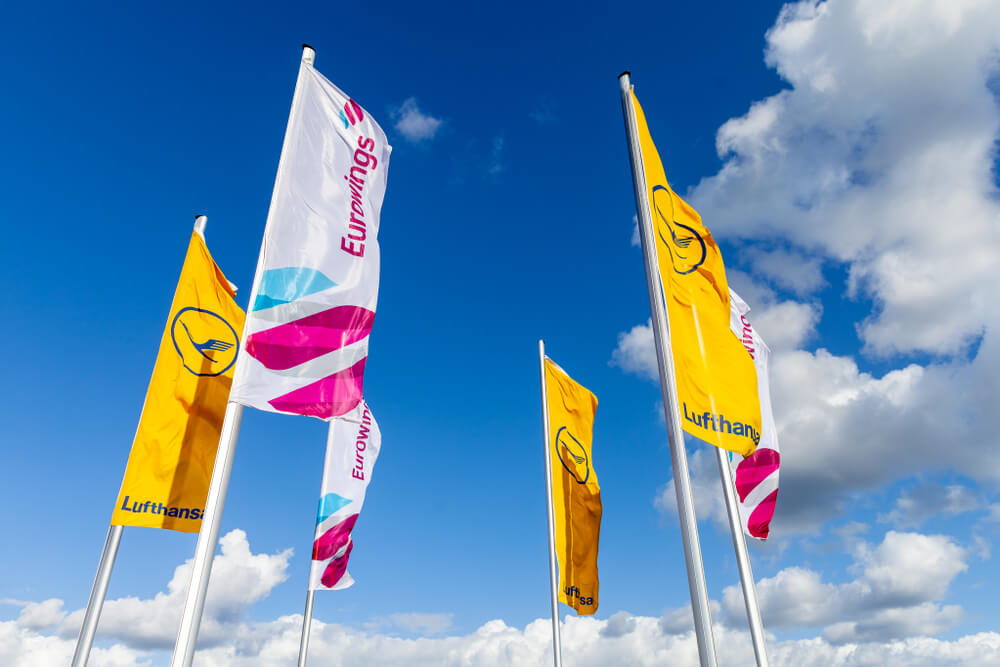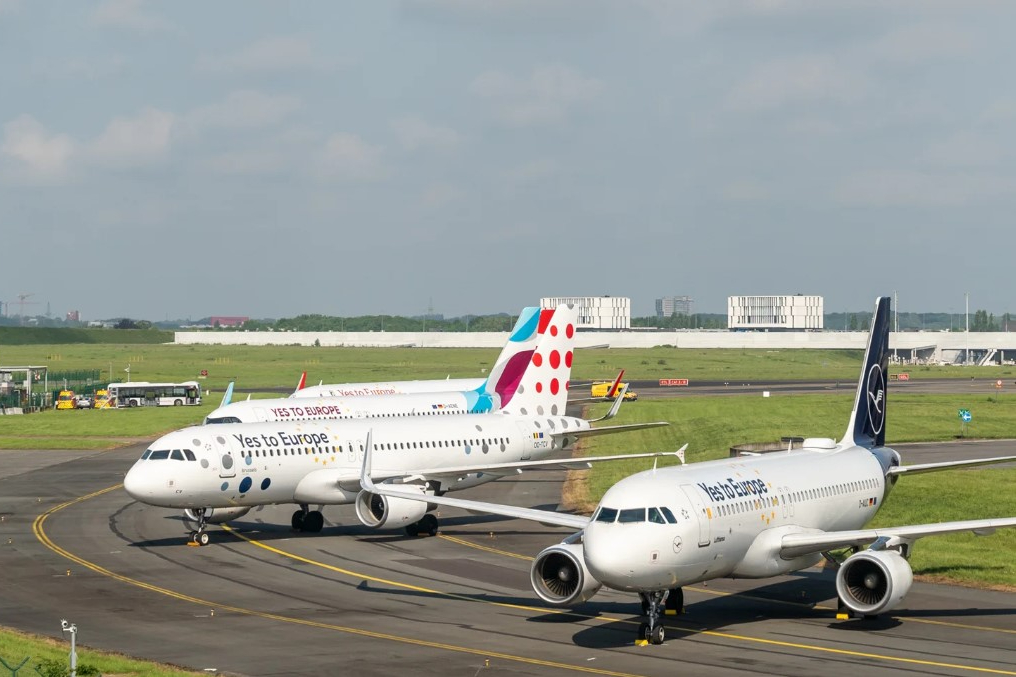On April 29, 2025, German-based Lufthansa Group reported its financial results for the first quarter of 2025 (1Q25). The results show a more positive outlook for the carrier, with revenues increasing and a more optimistic tone coming from the airline’s senior management for the remainder of 2025.
The Lufthansa Group increased its revenue in the first quarter of 2025 by 10% compared to the same period (January to March) in 2024. This translates as an increase to €8.1 billion in 1Q25 from €7.4 billion in 1Q24. The company posted an operating loss (adjusted EBIT) of €722 million, representing a significant improvement compared to the previous year, where it recorded a €849 million loss. The adjusted EBIT margin improved to -8.9% from -11.5% in 1Q24.
Revenue from the Group’s passenger airlines rose by 6% in the first quarter of 2025 to €5.9 billion, up from €5.6 billion the previous year. The operating result of the Lufthansa Group passenger airlines declined slightly with an adjusted EBIT loss of €934 million compared to the previous year, where an adjusted EBIT loss of €918 million was recorded.
Yields rose by 0.4% on average year-on-year, which the Group states was driven by “consistently high demand.” Unit revenues (RASK) were 2.7% higher than in the previous year, partly due to “significantly lower compensation payments to passengers compared with the strike-hit first quarter of the previous year.”
Unit costs (CASK), excluding fuel and emissions expenses, rose by 3.1% compared with the same quarter in 2024 due to general cost increases. The main cost drivers, said the Group, were fee increases at system partners such as air traffic control (up 19%) and airports, as well as high-cost inflation for maintenance services.
In addition, the seasonal shift of the usually strong Easter travel season, which fell in the first quarter of 2024, also had an impact on earnings development. “Without this shift, the passenger airlines would have significantly improved their earnings compared with the previous year,” added the airline group.
Operating cash flow rose to around €1.8 billion in the first quarter of 2025 versus €1.3 billion in 1Q24. The change, stated the airline, was mainly due to improved working capital concerning a seasonal increase in ticket sales. Including a decline in net capital expenditure, adjusted free cash flow improved to €835 million, up from €305 million in 1Q24. The Group further strengthened its balance sheet in the first quarter of 2025. Net debt decreased to €5.3 billion compared with the end of 2024 (€5.7 billion). Net pension obligations fell to €2.2 billion due to interest rates. At the end of March 2025, the company had total liquidity of €11.4 billion, up from €11 billion at the end of 2024.
Operation improvements
The Group’s airlines (which include Brussels Airlines, Austrian, SWISS, ITA Airways, and Discover Airlines), alongside Lufthansa and its subsidiaries, grew their capacity by almost 5% compared with the first quarter of 2024. Load factors declined slightly to 78.7%.
“Thanks to moderate growth compared with previous years, the operational stability and punctuality of the passenger airlines improved significantly despite the rising number of flights,” stated the Group. “In operational terms, the core brand Lufthansa had its best start to a year in ten years. At the Frankfurt hub alone, 20,000 fewer hotel beds had to be booked for guests in the first quarter than in the same period in 2024.”
Direct compensation payments for flight delays and cancellations fell groupwide by 52% to €47 million, down from €98 million in 1Q24 due to “significantly improved operational stability.”
“Global demand for air travel continues to grow,” said Carsten Spohr, Chairman of the Executive Board and CEO of Deutsche Lufthansa AG. “Despite all the geopolitical uncertainties, we therefore remain on course for growth, are optimistic about the summer, and are sticking to our positive outlook for 2025. In the first quarter, our airlines were able to sell their expanded capacity at higher yields in the market.”
Our revenue improved by 10% compared with the previous year, with Lufthansa Cargo and Lufthansa Technik also contributing with their strong performance. On the North Atlantic, the number of guests rose by more than 7% in the first quarter, with higher load factors and better yields. Demand continues to be robust for the second quarter. I am pleased that our guests are benefiting from significantly improved punctuality and stability, particularly with our core brand Lufthansa.”
“Operationally, we had our best start to the year in ten years. I would therefore like to express my special thanks to all crew members, technicians, and employees at the airports and in the operations centers of our airlines, who contributed to this success with their great commitment,” Spohr concluded.
2025 outlook remains positive
According to the Group, demand for air travel to and from North America remained strong in 1Q25. The overall number of passengers rose by 7.1% year-on-year. Load factors were also higher than in the previous year, with the seat load factor 0.7% above the 2024 figure. Average revenues for flights to and from North America also developed positively in the first quarter of 2025, rising by 6.7% compared with the first three months of the previous year.
Currently, demand in the US sales region continues to rise, says the Group. In March 2025, Lufthansa Group airlines carried around 25% more passengers from the US to Europe than in the same month in 2024. Global demand for air travel also remains strong, it stated, adding that the Lufthansa Group is expecting “another strong summer travel season overall.”
The most popular vacation destinations are Mediterranean destinations, especially Spain, Italy, and Greece, with demand for long-haul travel also remaining steady. Nevertheless, macroeconomic uncertainties, particularly the trade tensions between the US, the EU, and other regions, are making it difficult to forecast the coming quarters accurately, said the Group, with visibility for the third quarter remaining limited.
“We are in a period of high volatility,” said Till Streichert, Chief Financial Officer of Deutsche Lufthansa. “In this environment, it is good news that we are making progress as planned on issues within our control, such as our turnaround program at Lufthansa Airlines. At the same time, we are keeping an eye on market risks. We are well prepared to respond should these materialize.”
However, it is not just about risks, but also about positive factors that are already supporting our earnings performance today, such as favorable fuel prices and exchange rates. These can help to offset the financial effects of any changes in demand. Overall, we therefore remain confident that we will be able to achieve a full-year result significantly above the previous year’s level,” he added.





